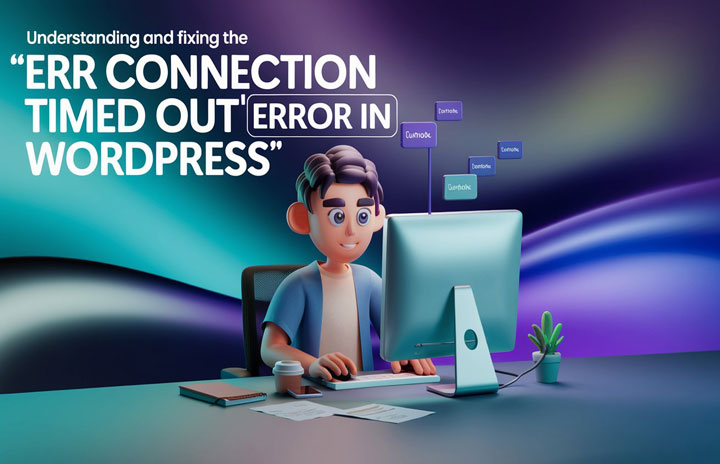In the ever-evolving world of digital communication, blogs have become a fundamental element of online expression and information sharing. But what exactly is a blog? A blog, short for “weblog,” is a type of website or a section of a website that features regularly updated content, typically in the form of written articles or posts. This content can cover a myriad of topics, from personal experiences to professional insights, and can vary in style, format, and purpose.
The Origins of Blogging
The concept of blogging emerged in the late 1990s as the internet became more accessible to the public. Initially, blogs served as online diaries where individuals shared their thoughts and experiences. Over time, however, blogging evolved into a powerful medium for sharing knowledge, opinions, and information. The advent of user-friendly content management systems (CMS) like WordPress, Blogger, and Medium has made it easier for anyone to start a blog, regardless of their technical expertise.
The Structure of a Blog
Typically, a blog consists of several key elements:
- Posts: These are the main content pieces, usually displayed in reverse chronological order (most recent first). Each post may include text, images, videos, and links.
- Categories and Tags: Blogs often organize content into categories and tags to help readers navigate topics easily. Categories are broader themes, while tags are more specific keywords related to the post.
- Comments Section: Many blogs include a comments section where readers can engage with the author and other readers, fostering community interaction.
- Sidebar: This area often contains additional navigation tools, such as recent posts, popular posts, or links to social media profiles.
- About Page: This page typically provides information about the blog, its purpose, and the author, helping readers understand the context of the content.
Types of Blogs
Blogs come in various forms, each serving different purposes and audiences:
- Personal Blogs: These blogs are often a reflection of the author’s life, interests, and experiences. They can cover topics such as travel, lifestyle, hobbies, and more.
- Professional Blogs: Aimed at a specific industry or niche, these blogs provide insights, tips, and information relevant to professionals and enthusiasts. They often establish the author as an authority in their field.
- Business Blogs: Many businesses maintain blogs to promote their products or services, share industry news, and engage with customers. This helps build brand awareness and credibility.
- Niche Blogs: These focus on specific topics or interests, such as food, fashion, technology, or fitness. Niche blogs attract a targeted audience passionate about those subjects.
- Guest Blogs: These allow writers to contribute content to another blog, often in exchange for exposure or backlinks to their own site.
The Importance of Blogging
Blogging offers numerous benefits for individuals and businesses alike:
- Establishing Authority: Regularly publishing informative content helps establish the author as an expert in their field, building trust with the audience.
- Driving Traffic: A well-maintained blog can attract organic traffic through search engines. By optimizing posts for SEO (Search Engine Optimization), bloggers can increase their visibility and reach.
- Engaging with the Audience: Blogs provide a platform for authors to interact with readers through comments and social media, fostering a sense of community.
- Content Marketing: For businesses, blogging is a key component of content marketing strategies. It helps in generating leads, nurturing relationships, and converting visitors into customers.
- Improving Writing Skills: For individuals, maintaining a blog can enhance writing and communication skills, providing a creative outlet for self-expression.
- Monetization Opportunities: Many bloggers eventually monetize their content through various means, such as affiliate marketing, sponsored posts, and selling digital products.
The Evolution of Blogging
As technology advances, blogging continues to evolve. Video blogs (vlogs) and microblogs (like those on social media platforms) have emerged as popular alternatives to traditional written blogs. Despite these changes, the essence of blogging—sharing information and fostering connection—remains intact.
How to Start a Blog
If you’re considering starting a blog, here are some steps to get you started:
- Choose a Niche: Identify a topic you are passionate about and knowledgeable in. This will help you create consistent and engaging content.
- Select a Blogging Platform: Choose a content management system that fits your needs. WordPress is a popular choice for its flexibility and ease of use.
- Pick a Domain Name: Your domain name should reflect your blog’s purpose and be memorable. Ensure it’s unique and not already in use.
- Design Your Blog: Customize your blog’s appearance with themes and plugins that enhance functionality and aesthetics.
- Create Quality Content: Focus on producing valuable, well-researched, and engaging posts that resonate with your audience.
- Promote Your Blog: Utilize social media, email marketing, and SEO techniques to drive traffic to your blog and grow your readership.
- Engage with Your Audience: Respond to comments and engage with readers on social media to build a community around your blog.
Conclusion
In summary, a blog is more than just an online diary; it’s a dynamic platform for sharing information, building relationships, and establishing authority in a chosen niche. Whether for personal expression or professional advancement, blogging remains a powerful tool in today’s digital landscape. With dedication and creativity, anyone can harness the potential of blogging to reach and engage a global audience.




